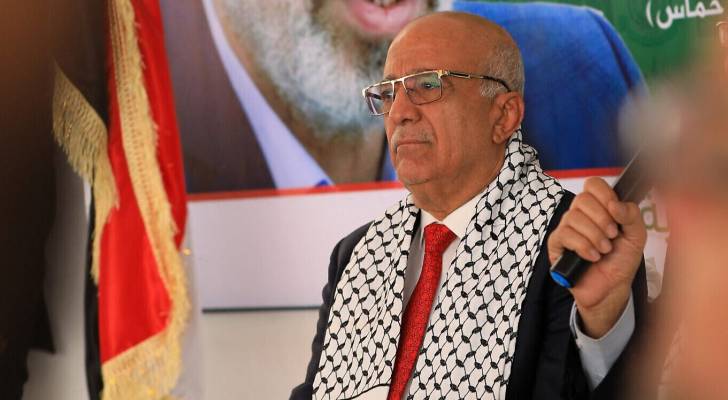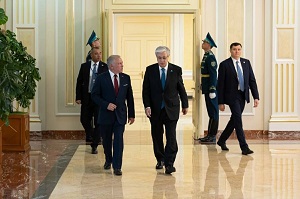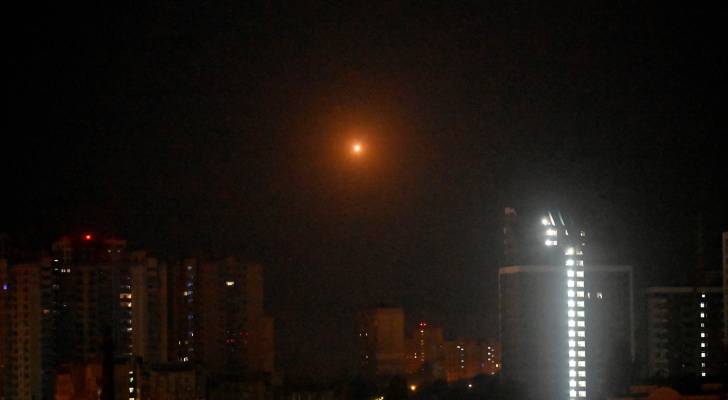KHCF policy paper calls for Labour Law reforms to protect cancer patients
The Jordan Times
AMMAN — Amid growing concerns over job security for cancer patients and their caregivers, Jordan is taking steps to strengthen legal protections for vulnerable workers facing health challenges.
The King Hussein Cancer Foundation (KHCF), in collaboration with the International Labour Organisation (ILO), has launched a policy paper aimed at reforming Jordan’s labour and social security laws to safeguard the rights of cancer patients and their families during and after treatment.
The initiative comes as patients and caregivers report losing jobs, facing discrimination, or struggling with financial instability due to prolonged medical absences.
Under current laws, sick leave is limited to just 28 days, far shorter than the months often required for cancer treatment, and there are no explicit protections against dismissal for health-related reasons.
One such case is Adham, a public employee who spoke to The Jordan Times about his struggle to balance cancer treatment with his job. “The illness wasn’t the obstacle, juggling work and therapy was,” he said.
Despite needing extended leave, his sick days were grouped together and deducted from his salary, with no consideration for his health or financial situation. “I was working under intense physical and emotional strain,” he added.
After sharing his case on a national radio programme, officials responded that cancer is not considered a work-related injury, and salary deductions were legally permitted.
Another case is that of Qusai, a freelance content creator and videographer, whose livelihood was upended following his cancer diagnosis. “I wasn’t tied to any official employer or social security system, so all the pressure fell on me,” he explained.
While most of his clients were understanding, one insisted he finish a project after making an initial payment. “I had to work between chemotherapy sessions, despite the exhaustion.”
The surgical procedure he underwent made filming especially painful, as lifting his arms caused severe discomfort. The lengthy treatment left him unable to work consistently, compounding both emotional and financial stress.
The new policy paper calls for sweeping changes to address these challenges. It proposes extending paid sick leave for cancer patients while allowing unused leave to be carried over, along with stronger job protections against dismissal during treatment and recovery.
The recommendations also include provisions for flexible work arrangements like remote work or reduced hours, guaranteed caregiver leave for family members, and strict anti-discrimination measures in hiring, promotions, and wages.
Speaking to The Jordan Times, KHCF Director General Nisreen Qatamish stressed the urgency of these changes.
"Cancer patients aren’t asking for charity, they’re asking for a fair chance to heal without losing their dignity or their jobs," she said. "This isn’t just a moral obligation; it’s an economic necessity. Retaining skilled workers benefits everyone."
The recommendations align with international standards, such as the UN Convention on the Rights of Persons with Disabilities, and have garnered support from government officials, NGOs, and private-sector leaders. A recent panel discussion at the launch event highlighted the need for swift legislative action.
Beyond legal reforms, KHCF has also expanded psychosocial and financial support programs for affected families. "We’re addressing the full spectrum of needs, medical, emotional, and economic," Qatamish added.
The foundation’s efforts reflect a broader commitment under the directives of His Majesty King Abdullah and HRH Princess Ghida Talal, Chairperson of KHCF’s Board of Trustees, to ensure no patient must choose between survival and financial ruin.
As Jordan advances in cancer treatment, advocates urge policymakers to modernise labour laws. “We need to reconsider the current approach, instead of pushing people permanently out of the workforce,” Qatamish told The Jordan Times.
Latest News
-
 Houthi prime minister killed in ‘Israeli’ airstrike on Yemen’s Sanaa: reports
Houthi prime minister killed in ‘Israeli’ airstrike on Yemen’s Sanaa: reports
-
 UK bans ‘Israel’ from London arms fair
UK bans ‘Israel’ from London arms fair
-
 Jordan’s trade surplus with US narrows as exports decline
Jordan’s trade surplus with US narrows as exports decline
-
 King, Kazakhstan president attend closing session of Kazakhstan-Jordan Business Forum
King, Kazakhstan president attend closing session of Kazakhstan-Jordan Business Forum
-
 Zelensky says 8 killed in Russian strikes on Kyiv
Zelensky says 8 killed in Russian strikes on Kyiv